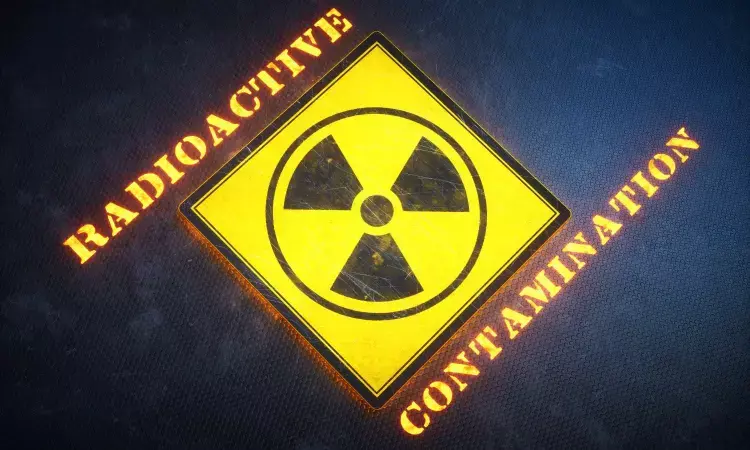- Home
- Medical news & Guidelines
- Anesthesiology
- Cardiology and CTVS
- Critical Care
- Dentistry
- Dermatology
- Diabetes and Endocrinology
- ENT
- Gastroenterology
- Medicine
- Nephrology
- Neurology
- Obstretics-Gynaecology
- Oncology
- Ophthalmology
- Orthopaedics
- Pediatrics-Neonatology
- Psychiatry
- Pulmonology
- Radiology
- Surgery
- Urology
- Laboratory Medicine
- Diet
- Nursing
- Paramedical
- Physiotherapy
- Health news
- Fact Check
- Bone Health Fact Check
- Brain Health Fact Check
- Cancer Related Fact Check
- Child Care Fact Check
- Dental and oral health fact check
- Diabetes and metabolic health fact check
- Diet and Nutrition Fact Check
- Eye and ENT Care Fact Check
- Fitness fact check
- Gut health fact check
- Heart health fact check
- Kidney health fact check
- Medical education fact check
- Men's health fact check
- Respiratory fact check
- Skin and hair care fact check
- Vaccine and Immunization fact check
- Women's health fact check
- AYUSH
- State News
- Andaman and Nicobar Islands
- Andhra Pradesh
- Arunachal Pradesh
- Assam
- Bihar
- Chandigarh
- Chattisgarh
- Dadra and Nagar Haveli
- Daman and Diu
- Delhi
- Goa
- Gujarat
- Haryana
- Himachal Pradesh
- Jammu & Kashmir
- Jharkhand
- Karnataka
- Kerala
- Ladakh
- Lakshadweep
- Madhya Pradesh
- Maharashtra
- Manipur
- Meghalaya
- Mizoram
- Nagaland
- Odisha
- Puducherry
- Punjab
- Rajasthan
- Sikkim
- Tamil Nadu
- Telangana
- Tripura
- Uttar Pradesh
- Uttrakhand
- West Bengal
- Medical Education
- Industry
Experimental oral drug may remove radioactive contaminants from human body

USA: The researchers have initiated a first-in-human clinical trial of an experimental oral drug to remove radioactive contaminants from inside the body. The trial tests the safety, tolerability and processing in the body of escalating doses of the investigational drug product HOPO 14-1 in healthy adults.
The Phase 1 trial is funded by The National Institute of Allergy and Infectious Diseases (NIAID), part of the National Institutes of Health, and sponsored and conducted by SRI International of Menlo Park, California.
Internal radioactive contamination occurs when radioactive elements are absorbed through wounded skin, inhaled or ingested. This could happen due to a nuclear power plant accident or the detonation of a “dirty bomb” or nuclear weapon. As the atoms of radioactive elements decay, they emit ionizing radiation, which can damage DNA, tissues and organs. One method for reducing the risk of this damage is to remove the radioactive elements from the body as soon as possible after contamination occurs.
The Food and Drug Administration has approved two products for removing internal radioactive contamination. These drugs, based on diethylenetriamine pentaacetate (DTPA), are administered intravenously by a healthcare provider and can remove three radioactive elements: plutonium, americium, and curium.
In contrast, HOPO 14-1 has been formulated as an oral capsule, which would be easier than an intravenous drug to stockpile, deploy, and administer during an emergency. Preclinical research has shown that HOPO 14-1 can effectively remove many radioactive contaminants, including uranium, neptunium, plutonium, americium, and curium. These studies also have found that HOPO 14-1 is up to 100 times more effective than DTPA at binding and removing these radioactive elements.
NIAID has funded the discovery and development of HOPO 14-1 since 2006. The active pharmaceutical ingredient in the drug is called 3,4,3-LI(1,2-HOPO).
The clinical trial is taking place at a site in Plymouth, Michigan, under the leadership of Sascha N. Goonewardena, M.D., a physician investigator at SRI’s Clinical Trials Unit and an assistant professor of medicine at the University of Michigan Medical School in Ann Arbor. The study team will enrol 42 healthy participants ages 18 to 65 in seven groups of six. Each participant in the first group will receive a 100-milligram (mg) dose of HOPO 14-1. The subsequent groups will receive increasingly higher doses of the study drug up to 7500 mg in the final group, if lower doses are deemed safe.
Participants will undergo intensive safety monitoring and will be followed for 14 days to measure the study drug's absorption, distribution and elimination. Results are expected in 2024.
Dr Kamal Kant Kohli-MBBS, DTCD- a chest specialist with more than 30 years of practice and a flair for writing clinical articles, Dr Kamal Kant Kohli joined Medical Dialogues as a Chief Editor of Medical News. Besides writing articles, as an editor, he proofreads and verifies all the medical content published on Medical Dialogues including those coming from journals, studies,medical conferences,guidelines etc. Email: drkohli@medicaldialogues.in. Contact no. 011-43720751


